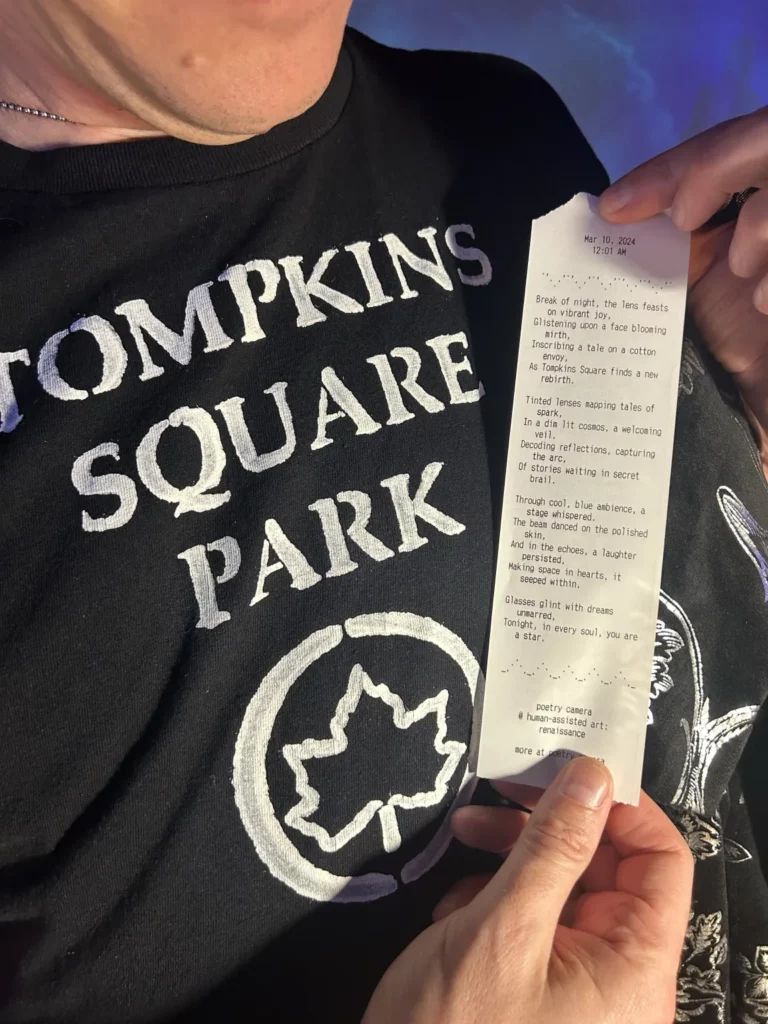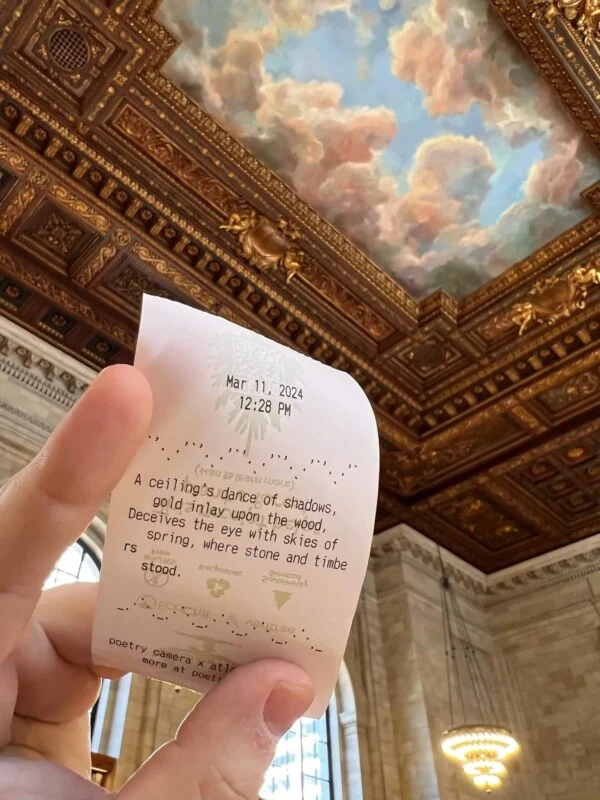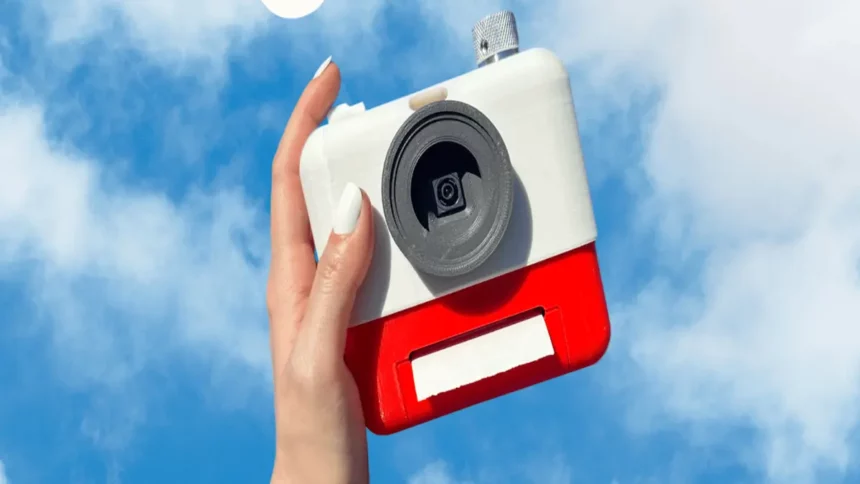The “Poetry Camera” has emerged as the latest sensation in the world of artificial intelligence (AI). Developed by Kelin Carolyn Zhang and Ryan Mather, this innovative device offers a unique way to transform photographs into expressive poetry, appealing to both tech enthusiasts and art aficionados alike.
Resembling a classic Polaroid camera, the Poetry Camera operates differently—it interprets the visual input it receives and converts it into poetic verse. According to a report by Interesting Engineering, This AI-driven gadget, powered by a Raspberry Pi single-board computer and OpenAI’s advanced GPT-4 model, analyzes elements like colors, patterns, and emotions to craft captivating poems that reflect the essence of the captured scene.
According to TechCrunch, One standout feature of the Poetry Camera is its versatility. Users can select from a range of poetic formats including sonnets, free verses, and haiku, allowing them to customize the creative output to suit the mood and style of the moment. This flexibility adds a personal touch to the poetic experience, making each composition unique and meaningful.

“The project’s origin is when I got access to GPT-3. My first instinct was to play Dungeons & Dragons with it because I’m a nerd. I figured ‘if this thing could play Dungeons & Dragons, that would be impressive.” Mather tells TechCrunch.
“And yeah, it did work for that. This was back when you had to do prompt engineering. So it took some elbow grease to get it to work.
“But I also had this idea of maybe making some camera as a project. ‘What if you took a camera, but it was a reaction to Instagram culture? What if text comes out instead of a photo?’
“Everyone prefers the book version over the movie, so it’s like that for capturing moments.”
ALSO READ: Hands-on Canon EOS R7 review
Unlike traditional photography, where images are stored digitally, the Poetry Camera takes a different approach. It does not save images or poems digitally, preserving the ephemeral nature of the artistic creation. This not only simplifies usage but also enhances privacy and adds a layer of uniqueness to each poem.

Mather explains, “We don’t save any of the images or the poems digitally. There are a few reasons for that: One, it’s easier. Two: privacy. Three, it adds extra meaning to the poems if they’re like these ephemeral sorts of artifacts. If you lose it, it’s gone.”
Zhang adds, “Everyone has a camera in their pocket through their cell phone now—we wanted to do something very different.”
With growing interest on platforms like Instagram and TikTok, Zhang and Mather are considering the future of the Poetry Camera. Originally conceived as a passion project, the device’s popularity has sparked discussions about potential commercialization.
ALSO READ: The World’s Fastest Camera that Can Capture 5 trillion Frames per second
“After the first 100 times people asked, we said, ‘We’re not selling it,’ but after 101 questions, we started thinking about it in more detail, wondering if we should be making it available to people,” Zhang remarks.
While specific pricing details are yet to be announced, Zhang and Mather are exploring limited product releases that prioritize quality and sustainability. This approach ensures that the Poetry Camera remains accessible while maintaining its artistic integrity.









